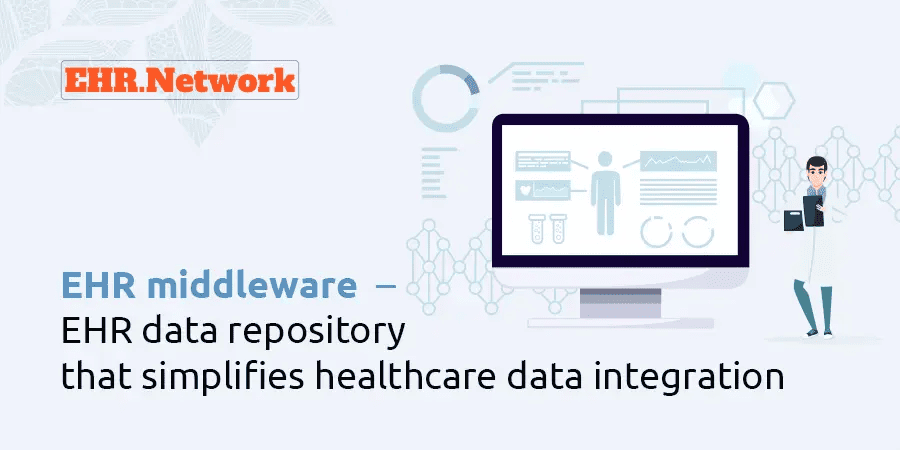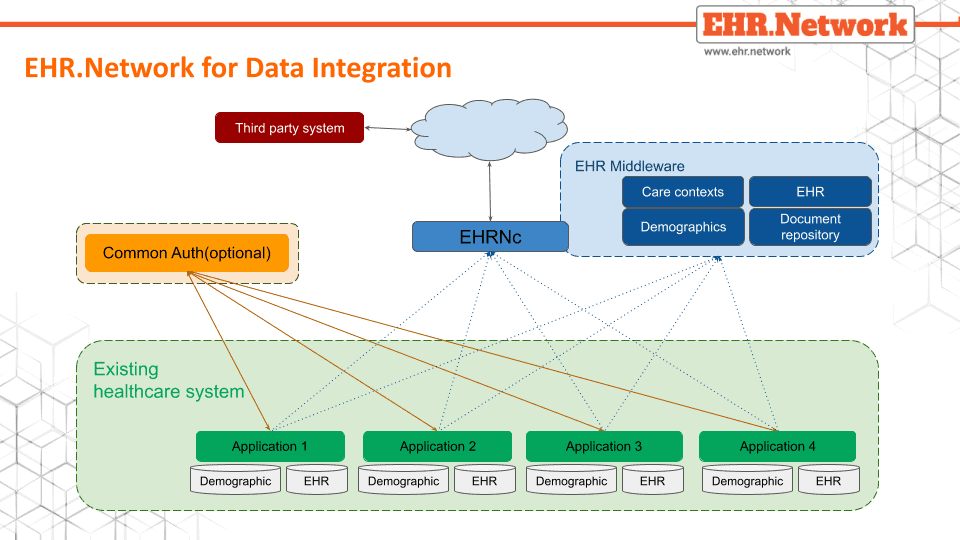EHR middleware – EHR data repository that simplifies healthcare data integration

Our EHR middleware is designed to act as a standards compliant ehr data store for exiting digitalhealth solutions. It helps these systems achieve interoperability with other digital health solutions, without the need for any changes to any existing applications.
Integration of clinical data from multiple systems is a primary requirement for most modern digital health systems. This involves sending and receiving data across multiple systems. Each system involved in this exchange could be disparate in the way they capture and persist health data. They could be using custom UI forms and schema for the persisted data.
However, when data flows between health systems, compliance to common EHR standards is necessary to achieve the required semantic interoperability. For this purpose, FHIR and openEHR are internationally accepted standards.
If you try to upgrade legacy systems to become natively interoperable, it involves the re-architecture of deployed digital solutions. This would result in disruption to your work flows, resulting in huge costs associated with re-engineering, redeployment and retraining the end users.
Our EHR Middleware achieves integration between legacy live systems with minimal disruption and at reduced cost & time. Further it eliminates your loss of productivity due to redeployment and retraining as there will be no impact to workflows in the deployed systems.
Alternatively, if your are on a digital transformation journey to achieving standards compliance in your healthIT system, our middleware can be the tool to help you in the journey of your legacy systems towards standards compliance. It can be deployed as a common data first repository that backward integrates with your legacy application and provides a unified data repository to any new application. You can progressively move more and more applications to this common repository and away from your legacy system, thereby progressing in your digital transformation without any major disruption.
EHR Standards compliance
Data repositories in our EHR middleware are fully EHR standards compliant. They support both structured and unstructured data. It can manage clinical data coded using any code system. This includes all the popular ones such as SNOMED CT, LOINC & ICD and also any custom code systems that health systems use.
It supports both FHIR & openEHR REST APIs for flexibility to deploy for varied requirements..
How it works

You legacy health solutions are often not designed for interoperability and standards compliance. Redesigning your existing solutions for standards based data exchange with other systems can be expensive, time consuming and cause disruption.
By introducing our standards compliant EHR middleware, you can simplify your interoperability process and reduce disruption. This middleware will provide a standards data repository that is used to interoperate standard EHR data.
Your legacy solution pushes the outbound data into this middleware and pulls the received data as required. All interoperability work flows are implemented from the new EHR middleware, without impacting your live system.
To your existing legacy system, the EHR middleware will work as an external repository to push and pull data as per the internal policies and workflows. Since all the middleware interactions are triggered from existing system, the interoperability related workflows will have minimal impact on the operation of your existing system.
Middleware APIs
https://docs.ehr.network/apidocs/dmw.html
Features
- Manage Patient, Practitioner & Organization profiles
- Manage third party IDs & references for discovery of entities
- Repository for outgoing clinical data
- Policy based data push from health systems for sharing
- Repository for incoming data.
- Flexible formats to fetch received data by health systems – FHIR, openEHR, custom
- Management of shared data to comply with integration requirements
- Data repository options – openEHR & FHIR
- Care context apis to group Clinical data for easy visualization & exchange
- Customizable trigger actions based on data events
Also read
- ABDM Connect for a simplified ABDM integration
- ABDM middleware for normalized EHR data repository for interoperable data